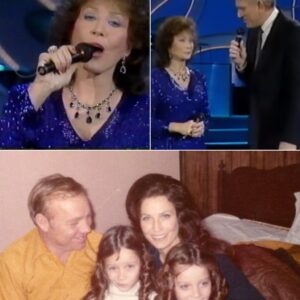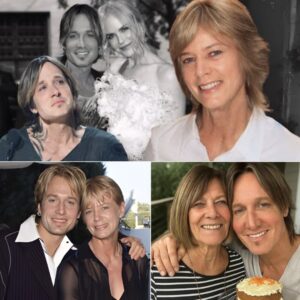I Asked My Daughters to Watch Their Little Brother for 2 Hours – An Hour Later He Begged Me to Come Home
I trusted my daughters to look after their sick little brother for just two hours—just long enough for me to handle a work emergency. It seemed simple. They were adults, living under my roof, and I thought they could manage. But when I got a text from my seven-year-old son begging me to come home, I knew something was wrong. What I walked into shattered the fragile trust I still had in them—and made me question everything I thought I knew about the people I raised.
I never imagined I’d be forced to choose between my children.
Let me explain. I’m 45, mother of three. My daughters, Kyra and Mattie, are both in their twenties—fresh out of college with degrees they haven’t figured out how to use yet. They moved back home five months ago after their lease fell through and their job hunt went sideways.
Then there’s Jacob. My youngest. My boy. Just seven years old and already carrying the weight of grief that no child should. He came from my second marriage, and he became the light of my life in a way I didn’t know was possible.
Kyra and Mattie are from my first marriage. That relationship ended twelve years ago in a bitter, drawn-out divorce where their father painted me as the villain. He won their loyalty, and I lost more than my marriage—I lost my place in my daughters’ lives. They chose to live with him. I got weekends and holidays, always feeling like a guest in their world.
When I met William four years later, things changed. He brought gentleness into a life that had felt sharp and raw for years. We married. And then Jacob was born—a miracle. William adored him. But my daughters never gave William a chance. Their father had poisoned that well long before it could be filled with anything new.
Still, I tried. I hosted. I called. I texted. They kept their distance. When they went off to college, their father paid their rent—until he remarried a woman who didn’t care much for them. That’s when the support dried up, and their call came.
“Mom, can we stay with you for a bit? Just until we get back on our feet.”
How could I say no?
They moved in not long after William’s death from cancer. He had barely been gone a month when they arrived. I was still buried in grief, and Jacob—sweet, sensitive Jacob—was still asking about his dad every night.
The girls were respectful at William’s funeral. Polite, even. But I could feel something cold in them, like they were relieved he was no longer in the picture. I pushed the thought away. Told myself I was imagining it. But deep down, I knew.
Jacob was cautious at first, curious about his big sisters. He’d ask about them quietly, peek around corners, try to show them his drawings. But they barely engaged. A tight smile, a distracted “cool,” and then back to their phones.
I tried to stay patient. I didn’t ask for rent or help with groceries. I just wanted them to be kind. To see him. To see me.
But they didn’t.
They slept late, made messes, and acted like our home was some halfway house between failed plans and the rest of their lives. I juggled a full-time job, bills, and Jacob’s grief on my own. I thought maybe time would heal it all.
And then, two days ago, everything broke.
Jacob woke up sick—pale, sweating, and miserable. I called off school and wrapped him in blankets on the couch. He was watching his favorite cartoons, sipping ginger ale, trying to smile.
Then my boss called. A major client was threatening to walk, and I had to go in. I couldn’t afford to lose the job. Not with two extra adults in the house, a child to raise, and a mortgage.
I turned to Kyra and Mattie.
“Just two hours,” I said. “He’s sick, he might throw up again, just check in on him, okay?”
“Sure,” Kyra said, barely glancing up from her phone.
I left with a pit in my stomach.
An hour later, my phone buzzed.
Jacob: “Mom, can you come home please?”
I froze. Called him. No answer. Tried again. Nothing. Then another text.
“I threw up again and I called for Kyra and Mattie but nobody came.”
I didn’t wait. I grabbed my things, told my boss it was an emergency, and ran to my car. I don’t remember the drive home—just my heart thudding like a drum.
When I burst through the door, I called out.
“Jacob?!”
His voice came from upstairs, faint. I found him curled beside his bed, shirt stained, cheeks wet with tears.
“I called and called…” he whispered. “They didn’t come.”
I cleaned him up, tucked him into fresh pajamas, sat with him until he calmed. Then I went downstairs, my fury rising like a tide.
Mattie was in the kitchen, heating something. Kyra was out back with her phone.
“You read his messages,” I said, shaking. “You knew he needed help and you did nothing.”
They shrugged. Blamed kitchen noise. Said they didn’t hear him.
But his texts? Read. No replies.
Their excuses landed with a thud. I stared at them—grown women, claiming they couldn’t be bothered.
“I asked for two hours. You couldn’t give him that.”
Kyra scoffed. “You’re being dramatic.”
“No,” I said. “I’m being a mother.”
That night, I gave them one week to leave.
Now, two days later, the silence in this house is heavy. They walk past me like ghosts, doors closed, eyes blank. They’re punishing me with their withdrawal, trying to make me feel guilty.
And sometimes, I do.
But then I see Jacob. Quiet now. He doesn’t ask about them anymore.
Last night he whispered, “Are they leaving because of me?”
“No, sweetheart. Not because of you. Because of their choices.”
I don’t know if I overreacted. I don’t know if I failed them, or if I’m failing now.
But I do know this: I won’t let my son grow up feeling like he’s in the way. I won’t let resentment pollute his sense of home. I won’t let grief be an excuse for cruelty.
So I ask you—was I wrong? Or did I do what any mother would do, when she finally saw her child wasn’t safe, not from the world, but from the very people who should have loved him most?





